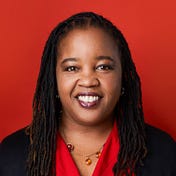
Radio show/podcast “Our Body Politic” @ farai.com/our-body-politic. Covered every Presidential election 1996–2020. Books include “The Episodic Career.”

Radio show/podcast “Our Body Politic” @ farai.com/our-body-politic. Covered every Presidential election 1996–2020. Books include “The Episodic Career.”